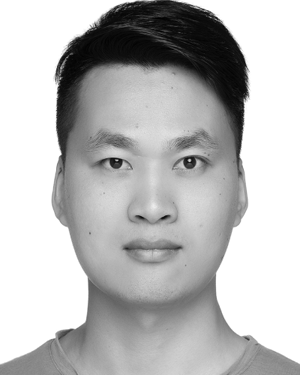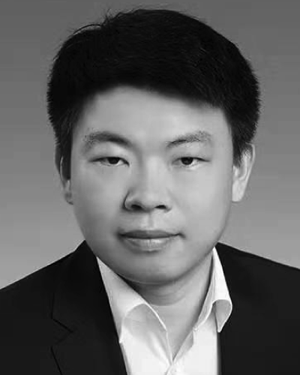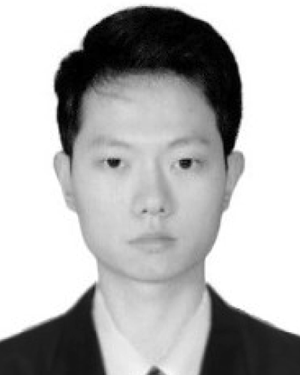Abstract:
In the field of autonomous vehicles, various heterogeneous sensors, such as LiDAR, Radar, camera, etc, are combined to improve the vehicle ability of sensing accuracy and...Show MoreMetadata
Abstract:
In the field of autonomous vehicles, various heterogeneous sensors, such as LiDAR, Radar, camera, etc, are combined to improve the vehicle ability of sensing accuracy and robustness. Multi-modal perception and learning has been proved to be an effective method to help vehicle understand the nature of complex environments. Event camera is a bio-inspired vision sensor that captures dynamic changes in the scene and filters out redundant information with high temporal resolution and high dynamic range. These characteristics of the event camera make it have a certain application potential in the field of autonomous vehicles. In this paper, we introduce a fully convolutional neural network with feature attention gate component (FAGC) for vehicle detection by combining frame-based and event-based vision. Both grayscale features and event features are fed into the feature attention gate component (FAGC) to generate the pixel-level attention feature coefficients to improve the feature discrimination ability of the network. Moreover, we explore the influence of different fusion strategies on the detection capability of the network. Experimental results demonstrate that our fusion method achieves the best detection accuracy and exceeds the accuracy of the method that only takes single-mode signal as input.
Published in: IEEE Sensors Journal ( Volume: 21, Issue: 21, 01 November 2021)
Funding Agency:

Chair of Robotics, Artificial Intelligence and Real-Time Systems, Technische Universität München, München, Germany
Hu Cao received the M.Eng. degree in vehicle engineering from Hunan University, China, in 2019. He is currently pursuing the Ph.D. degree in computer science as a member of the Informatics-6, Chair of Robotics, Artificial Intelligence and Real-Time Systems, Technische Universität München. His research interests include computer vision, neuromorphic engineering, robotics, and deep learning.
Hu Cao received the M.Eng. degree in vehicle engineering from Hunan University, China, in 2019. He is currently pursuing the Ph.D. degree in computer science as a member of the Informatics-6, Chair of Robotics, Artificial Intelligence and Real-Time Systems, Technische Universität München. His research interests include computer vision, neuromorphic engineering, robotics, and deep learning.View more

School of Automotive Studies, Tongji University, Shanghai, China
Guang Chen (Member, IEEE) received the B.S. and M.Eng. degrees in mechanical engineering from Hunan University, China, and the Ph.D. degree from the Faculty of Informatics, Technical University of Munich, Germany. He is a Research Professor with Tongji University and a Senior Research Associate (Guest) with the Technical University of Munich. He is leading the Intelligent Sensing, Perception and Computing Group, Tongji Un...Show More
Guang Chen (Member, IEEE) received the B.S. and M.Eng. degrees in mechanical engineering from Hunan University, China, and the Ph.D. degree from the Faculty of Informatics, Technical University of Munich, Germany. He is a Research Professor with Tongji University and a Senior Research Associate (Guest) with the Technical University of Munich. He is leading the Intelligent Sensing, Perception and Computing Group, Tongji Un...View more

School of Electrical and Data Engineering, FEIT, University of Technology Sydney, Ultimo, NSW, Australia
Jiahao Xia received the B.E. degree from Wuhan University of Technology in 2017 and the M.E. degree from Hunan University in 2020. He is currently pursuing the Ph.D. degree with the University of Technology, Sydney. His research interests include computer vision, face alignment, and object detection.
Jiahao Xia received the B.E. degree from Wuhan University of Technology in 2017 and the M.E. degree from Hunan University in 2020. He is currently pursuing the Ph.D. degree with the University of Technology, Sydney. His research interests include computer vision, face alignment, and object detection.View more

Chair of Robotics, Artificial Intelligence and Real-Time Systems, Technische Universität München, München, Germany
Genghang Zhuang received the B.Eng. and M.Eng. degrees in software engineering from Sun Yat-sen University, China, in 2017 and 2019, respectively. He is currently pursuing the Ph.D. degree with the Chair of Robotics, Artificial Intelligence and Real-Time Systems, Department of Informatics, Technical University of Munich, Germany. His research interests include perception and planning in autonomous driving, especially with...Show More
Genghang Zhuang received the B.Eng. and M.Eng. degrees in software engineering from Sun Yat-sen University, China, in 2017 and 2019, respectively. He is currently pursuing the Ph.D. degree with the Chair of Robotics, Artificial Intelligence and Real-Time Systems, Department of Informatics, Technical University of Munich, Germany. His research interests include perception and planning in autonomous driving, especially with...View more

Chair of Robotics, Artificial Intelligence and Real-Time Systems, Technische Universität München, München, Germany
Alois Knoll (Senior Member, IEEE) received the Diploma (M.Sc.) degree in electrical/ communications engineering from the University of Stuttgart, Germany, in 1985, and the Ph.D. (summa cum laude) degree in computer science from the Technical University of Berlin, Germany, in 1988. He served on the Faculty of the Computer Science Department, TU Berlin, until 1993. He joined the University of Bielefeld, as a Full Professor ...Show More
Alois Knoll (Senior Member, IEEE) received the Diploma (M.Sc.) degree in electrical/ communications engineering from the University of Stuttgart, Germany, in 1985, and the Ph.D. (summa cum laude) degree in computer science from the Technical University of Berlin, Germany, in 1988. He served on the Faculty of the Computer Science Department, TU Berlin, until 1993. He joined the University of Bielefeld, as a Full Professor ...View more

Chair of Robotics, Artificial Intelligence and Real-Time Systems, Technische Universität München, München, Germany
Hu Cao received the M.Eng. degree in vehicle engineering from Hunan University, China, in 2019. He is currently pursuing the Ph.D. degree in computer science as a member of the Informatics-6, Chair of Robotics, Artificial Intelligence and Real-Time Systems, Technische Universität München. His research interests include computer vision, neuromorphic engineering, robotics, and deep learning.
Hu Cao received the M.Eng. degree in vehicle engineering from Hunan University, China, in 2019. He is currently pursuing the Ph.D. degree in computer science as a member of the Informatics-6, Chair of Robotics, Artificial Intelligence and Real-Time Systems, Technische Universität München. His research interests include computer vision, neuromorphic engineering, robotics, and deep learning.View more

School of Automotive Studies, Tongji University, Shanghai, China
Guang Chen (Member, IEEE) received the B.S. and M.Eng. degrees in mechanical engineering from Hunan University, China, and the Ph.D. degree from the Faculty of Informatics, Technical University of Munich, Germany. He is a Research Professor with Tongji University and a Senior Research Associate (Guest) with the Technical University of Munich. He is leading the Intelligent Sensing, Perception and Computing Group, Tongji University. He was a Research Scientist at fortiss GmbH, a research institute of the Technical University of Munich, from 2012 to 2016, and a Senior Researcher with the Chair of Robotics, Artificial Intelligence and Real-Time Systems, Technical University of Munich, from 2016 to 2017. His research interests include computer vision, image processing and machine learning, and the bio-inspired vision with applications in robotics, and autonomous vehicle. He was awarded the Program of Tongji Hundred Talent Research Professor 2018.
Guang Chen (Member, IEEE) received the B.S. and M.Eng. degrees in mechanical engineering from Hunan University, China, and the Ph.D. degree from the Faculty of Informatics, Technical University of Munich, Germany. He is a Research Professor with Tongji University and a Senior Research Associate (Guest) with the Technical University of Munich. He is leading the Intelligent Sensing, Perception and Computing Group, Tongji University. He was a Research Scientist at fortiss GmbH, a research institute of the Technical University of Munich, from 2012 to 2016, and a Senior Researcher with the Chair of Robotics, Artificial Intelligence and Real-Time Systems, Technical University of Munich, from 2016 to 2017. His research interests include computer vision, image processing and machine learning, and the bio-inspired vision with applications in robotics, and autonomous vehicle. He was awarded the Program of Tongji Hundred Talent Research Professor 2018.View more

School of Electrical and Data Engineering, FEIT, University of Technology Sydney, Ultimo, NSW, Australia
Jiahao Xia received the B.E. degree from Wuhan University of Technology in 2017 and the M.E. degree from Hunan University in 2020. He is currently pursuing the Ph.D. degree with the University of Technology, Sydney. His research interests include computer vision, face alignment, and object detection.
Jiahao Xia received the B.E. degree from Wuhan University of Technology in 2017 and the M.E. degree from Hunan University in 2020. He is currently pursuing the Ph.D. degree with the University of Technology, Sydney. His research interests include computer vision, face alignment, and object detection.View more

Chair of Robotics, Artificial Intelligence and Real-Time Systems, Technische Universität München, München, Germany
Genghang Zhuang received the B.Eng. and M.Eng. degrees in software engineering from Sun Yat-sen University, China, in 2017 and 2019, respectively. He is currently pursuing the Ph.D. degree with the Chair of Robotics, Artificial Intelligence and Real-Time Systems, Department of Informatics, Technical University of Munich, Germany. His research interests include perception and planning in autonomous driving, especially with LiDAR sensors and biologically inspired methods.
Genghang Zhuang received the B.Eng. and M.Eng. degrees in software engineering from Sun Yat-sen University, China, in 2017 and 2019, respectively. He is currently pursuing the Ph.D. degree with the Chair of Robotics, Artificial Intelligence and Real-Time Systems, Department of Informatics, Technical University of Munich, Germany. His research interests include perception and planning in autonomous driving, especially with LiDAR sensors and biologically inspired methods.View more

Chair of Robotics, Artificial Intelligence and Real-Time Systems, Technische Universität München, München, Germany
Alois Knoll (Senior Member, IEEE) received the Diploma (M.Sc.) degree in electrical/ communications engineering from the University of Stuttgart, Germany, in 1985, and the Ph.D. (summa cum laude) degree in computer science from the Technical University of Berlin, Germany, in 1988. He served on the Faculty of the Computer Science Department, TU Berlin, until 1993. He joined the University of Bielefeld, as a Full Professor and the Director of the Research Group Technical Informatics until 2001. Since 2001, he has been a Professor with the Department of Informatics, TU München. He was also on the board of directors of the Central Institute of Medical Technology, TUM (IMETUM). From 2004 to 2006, he was the Executive Director of the Institute of Computer Science, TUM. His research interests include cognitive, medical, and sensor-based robotics, multi-agent systems, data fusion, adaptive systems, multimedia information retrieval, model-driven development of embedded systems with applications to automotive software and electric transportation, and simulation systems for robotics and traffic.
Alois Knoll (Senior Member, IEEE) received the Diploma (M.Sc.) degree in electrical/ communications engineering from the University of Stuttgart, Germany, in 1985, and the Ph.D. (summa cum laude) degree in computer science from the Technical University of Berlin, Germany, in 1988. He served on the Faculty of the Computer Science Department, TU Berlin, until 1993. He joined the University of Bielefeld, as a Full Professor and the Director of the Research Group Technical Informatics until 2001. Since 2001, he has been a Professor with the Department of Informatics, TU München. He was also on the board of directors of the Central Institute of Medical Technology, TUM (IMETUM). From 2004 to 2006, he was the Executive Director of the Institute of Computer Science, TUM. His research interests include cognitive, medical, and sensor-based robotics, multi-agent systems, data fusion, adaptive systems, multimedia information retrieval, model-driven development of embedded systems with applications to automotive software and electric transportation, and simulation systems for robotics and traffic.View more


